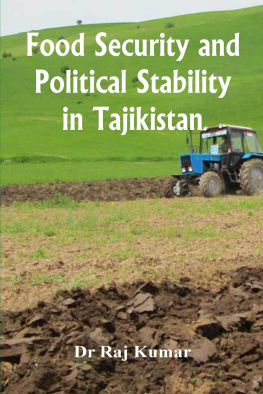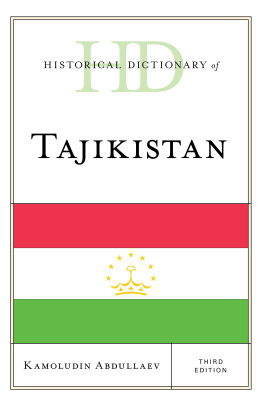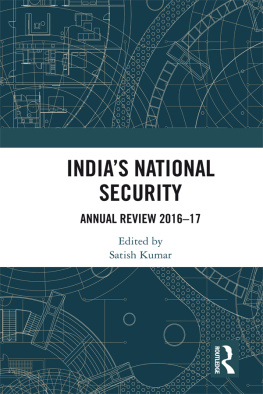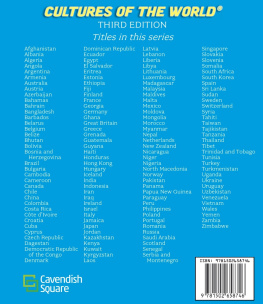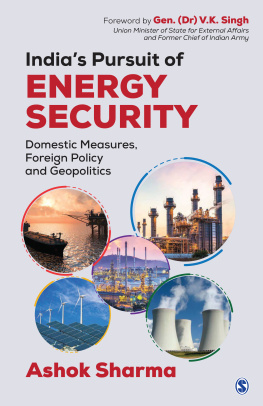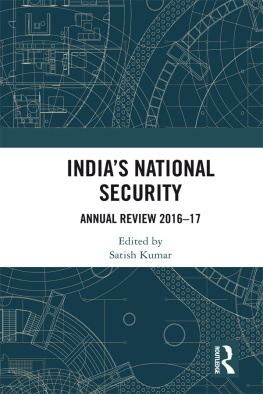Food Security
and Political Stability
in Tajikistan
Food Security
and Political Stability
in Tajikistan
by
Raj Kumar Sharma
Vij Books India Pvt Ltd
New Delhi (India)
Published by
Vij Books India Pvt Ltd
(Publishers, Distributors & Importers)
2/19, Ansari Road
Delhi 110 002
Phones: 91-11-43596460, 91-11-47340674
e-mail:
web : www.vijbooks.com
First Published in India in 2018
Copyright 2018, Author
ISBN: 978-81-937591-3-4 (Hardback)
ISBN: 978-81-937591-5-8 (ebook)
All rights reserved.
No part of this book may be reproduced, stored in a retrieval system,
transmitted or utilized in any form or by any means, electronic, mechanical,
photocopying, recording or otherwise, without the prior permission of the
copyright owner. Application for such permission should be addressed to the
publisher.
The views expressed in this book are of the author in his personal capacity and
do not represent the views of the institution he belong to.
Maps, Figures and Tables
.
.
.
.
.
.
.
.
.
.
.
.
.
.
.
.
.

The issue of food security is gradually moving to the centre stage of international politics. With rising population world over, nations are grappling with food problems and drawing up strategies to meet the challenges. In this respect, Tajikistan is no exception. Ever since it gained independence in 1991, the issue of food security has been a priority in Tajikistans strategic thinking. One of the objectives of the Tajik opposition in the civil war which began in 1992 was to control land resources. Being a mountainous country with only seven percent of arable land, Tajikistan has always depended on food imports. Historically, Tajikistan was part of the integrated Fergana market that was a source for procuring its food requirements. Later, food imports came from the Soviet Union as Tajikistan became a part of it. The breakup of Soviet Union left Tajikistan with twisted borders and a disrupted infrastructure that cut it off from its traditional market sources. In turn, the issue of food imports got aggravated and became one of the key concerns for the government. Tajikistans landlocked status further compounded the problem.
However, the Tajik state is taking steps to mitigate the difficulties faced by its population. For instance, land reforms were initiated and measures to improve infrastructure particularly with neighbouring countries have been taken up as well. The UN agencies and international financial institutions are forthcoming in their assistance to Tajikistan in its efforts to achieve economic development especially on connectivity issues. The government is taking steps to move away from dependence on cotton cultivation towards growing more food crops.
This is a well researched study on Food Security and Political Stability in Tajikistan which has analysed all the relevant dimensions of food security in Tajikistan and its possible impact on the nations political stability. The study will, undoubtedly, stimulate further research into other related aspects. I wish Dr Raj Kumar Sharma all the very best in his career.
Prof Nirmala Joshi
Former Professor
School of International Studies
Jawaharlal Nehru University,
New Delhi

Food security has become an important aspect in international relations after the world food crisis of 2007-08. Food riots were witnessed in a number of countries contributing to political instability. Tajikistan, a Central Asian country adjoining Afghanistan faces a number of food related problems. A country with poor economic indicators, Tajikistan imports almost 50 percent of its food which exposes it to food price fluctuations in the international market. Tajikistans struggle to ensure food security can be traced to the days of Tsarist Russia when Bukhara (comprising most of the territory of present day Tajikistan) was annexed by Moscow. The Tsarist regime introduced cotton monoculture in Bukhara while its population received grains from Moscow. This made Tajikistan dependent on food supplies from Moscow till 1991. After gaining independence in 1991, Tajikistan suffered a civil war which led to severe food problems. Things have improved in recent times but ensuring food security of its people is still a big challenge for the Tajik government.
There was little academic research on Tajikistan till it became independent in 1991. However, the academic interest in the country has increased after 2001 US intervention in Afghanistan. Tajikistan shares more than 1,000 km border with the war torn country and has security linkages with Afghanistan. This work is an attempt to fill the academic void on Tajikistan, especially pertaining to its problem of food insecurity. This book traces the history of agriculture and food production in Tajikistan from mid-19th century when it came under Russian rule. From its inception, Tajikistan has been facing the geographic handicap as it is a mountainous country and only 7 percent of the total land is arable. Soviet policies made Tajikistan dependent on Moscow for food supplies and once Soviet Union disintegrated, the independent state of Tajikistan lacked economic capacity to ensure food security of its citizens. Political instability has led to food problems in Tajikistan, be it the testing times of Russian revolution or the Tajik civil war (1992-97). This book is a detailed study of how Soviet economic geography introduced intensive cotton cultivation in Tajikistan at the expense of food crops. Soviet economic planners felt that a region with hot climate and large water resources should not attempt to grow grains but cotton. The book also tries to analyze whether food insecurity can lead to political instability in Tajikistan.
I am thankful to Vij Books for publishing my work which I conducted as part of my PhD thesis at the Centre for Russian and Central Asian Studies, School of International Studies, Jawaharlal Nehru University, New Delhi. I convey my thanks to my supervisor, Dr Nalin Mohapatra who helped me through thick and thin in completing my dissertation. Other faculty members at the Centre were also of immense help and encouragement. My special thanks to Prof Nirmala Joshi and Prof D Gopal who have helped in shaping my career and intellect. I am equally thankful to people at the United Service Institution (USI), Lt Gen P K Singh, Maj Gen B K Sharma, Gp Capt Sharad Tiwari, Dr Roshan and Dr Nivedita Das Kundu and faculty members at Indira Gandhi National Open University (IGNOU), Prof Anurag Joshi, Prof Jagpal Singh and Prof S V Reddy. Last but not the least; I also thank my wife, Geetanjali who has been a pillar of strength in my life despite handling motherhood and her own PhD thesis at the same time. I dedicate this work to my one year old son, Samarth whose boundless energy motivates me to work harder. Needless to say, all errors remain mine own.





